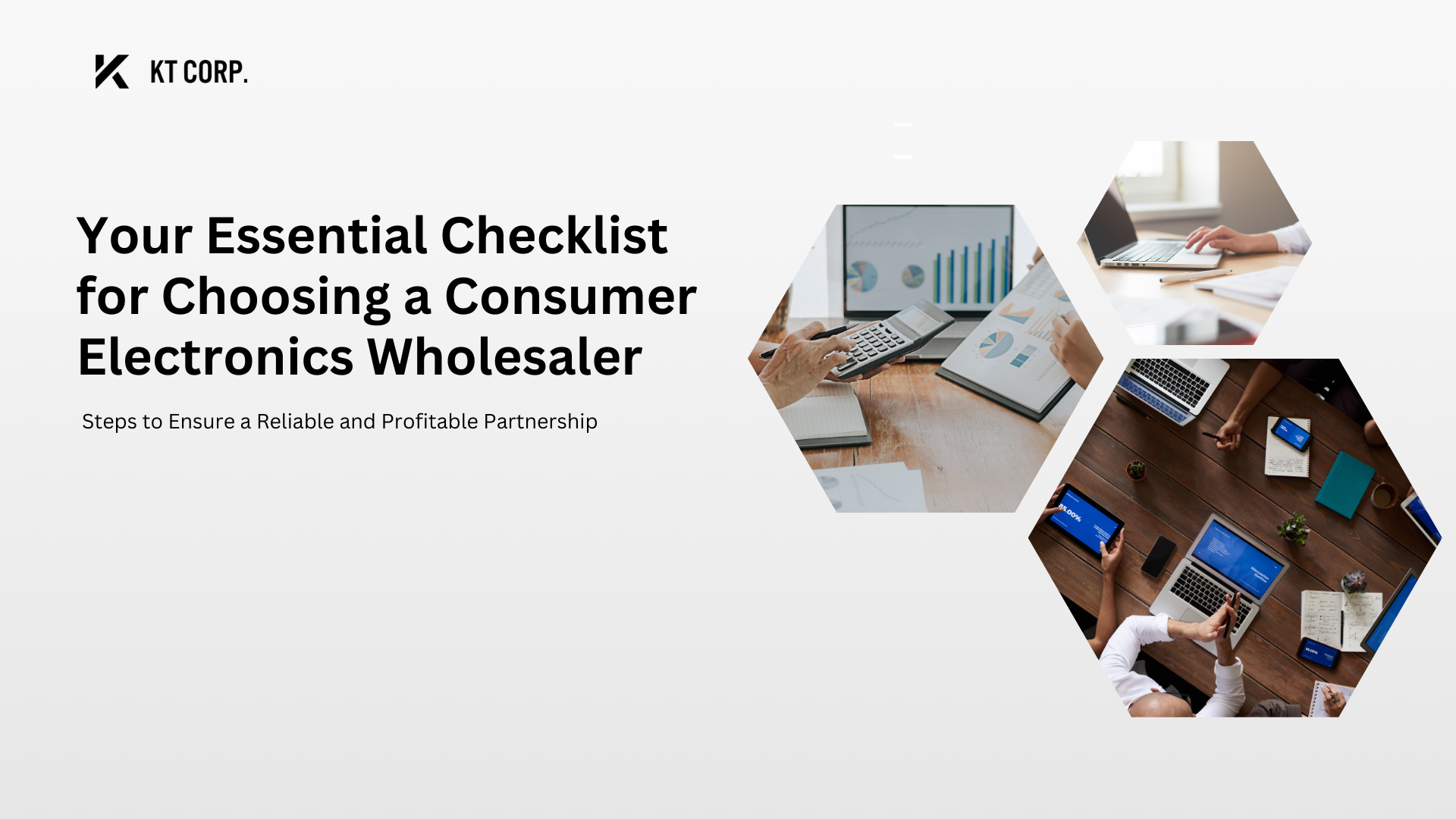
Your Essential Checklist for Choosing a Consumer Electronics Wholesaler
When it comes to selecting a consumer electronics wholesaler, making the right choice is crucial for the success of your business. This checklist will guide you through the key considerations and steps to ensure you partner with a reliable and profitable wholesaler.
1. Identify Your Target Market
Identifying your market is a very important for several reasons . This process involves getting a better understanding who your potential customers are . Are you targeting tech-savvy professionals, budget-conscious students, or high-end consumers looking for premium products ? Understanding your audience is the first step. By knowing who your customers are, you can select products that appeal directly to their needs and preferences. This helps in choosing a wholesaler that supplies the right kind of products.
2. Determine Product Categories
It’s best to have a structured approach when determining product categories , you should group products based on shared characteristics, usage , target audience, and other pertinent information. Do you need smartphones, laptops, accessories, home appliances, or a mix of different electronics? Different wholesalers specialize in different categories. By identifying the specific types of products you want to stock, you can narrow down your list of potential wholesalers to those who can meet your needs effectively.
3. Assess Your Sales Channels
Assessing Sales Channels is crucial for optimizing your product distribution strategy enhancing customer reach and maximizing revenue. Questions that you should be asking is, will you be selling online, in a brick-and-mortar store, or through both channels? The type of sales channel you use will influence the kind of inventory you need. For instance, an online store might require a diverse range of products and efficient shipping logistics, whereas a physical store might focus on high-demand items with attractive displays.
4. Evaluate Your Budget
Evaluating your budget is a fundamental practice for both individuals and business. It consists of reviewing your financial plans to ensure that your expenditures are not need exceeding your income. So it becomes a balancing act to making sure that you have always have funds to cover your day to day expenses and to avoid running into difficulties. What is your budget for initial stock purchases, and do you have a plan for cash flow management?
Your budget is a critical factor. It determines the scale of your initial orders and influences the types of products you can afford. A clear budget plan helps in making informed decisions and avoiding over-expenditure.
5. Understand Market Trends
Understanding market trends is very important for business trying to stay competitive and adapt to changing consumer preferences. Like for example, What are the current trends in consumer electronics and if there specific brands or products gaining popularity. Staying updated with market trends ensures that you stock products that are in demand. This can lead to quicker sales and reduced risk of unsold inventory. Knowing what’s trending helps in selecting a wholesaler that can provide these popular items.
By analyzing patterns in consumer behavior ,technological advancements, economic shifts can help companies develop strategies to innovating their product offerings and optimizing their strategies.
6. Project Sales Volume
What is your estimated monthly or quarterly sales volume based on your business plan and market analysis? Estimating your sales volume helps in determining the amount of inventory you need. This ensures you can meet customer demand without overstocking or understocking, allowing for smooth operations and satisfied customers.
7. Define Your Unique Selling Proposition (USP)
What sets your business apart from competitors? Is it price, product variety, customer service, or another factor? Understanding your USP helps in choosing a wholesaler that aligns with your business strategy. Whether it’s competitive pricing, a wide variety of products, or excellent customer service, your wholesaler should support and enhance your unique advantages.
8. Plan for Storage and Inventory Management
Do you have adequate storage facilities for bulk orders? How will you manage inventory to avoid stockouts or overstock? Efficient storage and inventory management are crucial for handling bulk purchases. Ensuring you have the right facilities and systems in place prevents issues like stockouts or excessive overstock, which can impact your business negatively.
9. Identify Required Certifications and Compliance
Do you need specific certifications for the products you are selling, such as safety standards or energy efficiency ratings? Some consumer electronics require compliance with specific regulations and certifications. It’s important that your wholesaler provides products that meet these standards to avoid legal issues and ensure customer satisfaction.
10. Consider Long-Term Business Goals
Are you planning to expand your product range or enter new markets in the future? Choosing a wholesaler that can support your long-term goals is essential for sustained growth. Whether you plan to expand your product range or enter new markets, aligning with a wholesaler that can adapt to your evolving needs ensures a stable and scalable supply chain.
Selecting the right consumer electronics wholesaler is a critical decision that can significantly impact your business success. By following this checklist and thoroughly understanding your business needs, you can ensure a reliable and profitable partnership with a wholesaler that supports your goals and helps your business thrive.
Contact us today for more information.
